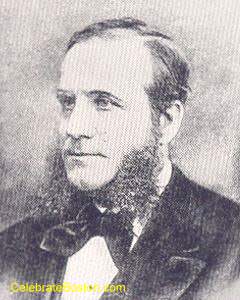 |
Mayor Samuel Crocker Cobb
Served 1874-1876
"Born in Taunton, May 22, 1826; died February 18, 1891; served as Mayor during 1874-1876.
Mayor Cobb was elected by a nearly unanimous vote, the first occurrence of this kind recorded in the municipal history of Boston. He had experience in city affairs and was a man of pronounced courage, a firm believer in a nonpartisan administration of local affairs. He was much concerned with the establishment of public parks in different sections of Boston and instrumental in forwarding the park movement generally.
Under Mayor Cobb, on petition of the City Council, the General Court passed an act authorizing the appointment of the Boston Water Board, to be organized on the same basis as the health and fire boards.
There had long been trouble over the question of issuing liquor licenses. Mayor Cobb announced in his first inaugural that he would 'use all legal means to carry into effect a law which should have for its object the regulation and restraint of the liquor traffic.' A license law was secured shortly afterwards, to be executed by a board of three license commissioners, to be appointed by the Mayor, with the consent of the City Council.
Another innovation under Mayor Cobb was the establishment of a board of registrars of voters, to consist of three persons appointed by the Mayor, with the approval of the Board of Aldermen. There had been much dissatisfaction over the manner in which election affairs were looked after. Hitherto, a ward clerk and six inspectors had been elected by the qualified voters of each ward to superintend elections and count the votes. Mayor Cobb was authorized to appoint three of the six inspectors in each ward, hoping thereby to do away with the frequent election scandals, but the reform was not sufficiently drastic.
Finally, in 1878, the city was divided into voting precincts of five hundred registered voters in each, as nearly as possible, and the Mayor was authorized to appoint two inspectors representing different political parties.
The event of greatest historical interest during Mayor Cobb's administration was the celebration of the one hundredth anniversary of the battle of Bunker Hill. It is related that on this occasion many men who had taken leading parts in the war of the rebellion, both Unionists and Confederates, met for the first time in peace.
Mayor Cobb stood for strict economy, and in 1874 the tax rate was placed at $15.60 so that expenditures could be met from taxes. His attitude can be summed up in his own words contained in the last address to the City Council: 'The question for us, therefore, is not what expenditures and enterprises would be desirable or ornamental for the future, but what are indispensable for health, for order, for security, and for the accommodation of such traffic as there is, for maintaining the public property in repair, and keeping the machinery of our vital institutions of education, charity and reform in vigorous operation.' In 1875 and 1876 the tax rate was lowered in order to reduce the burden of taxation."
